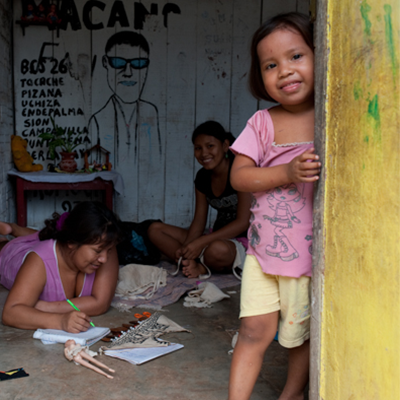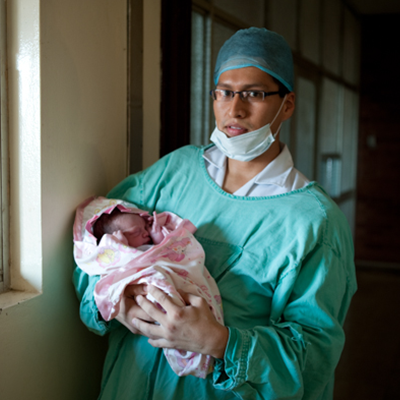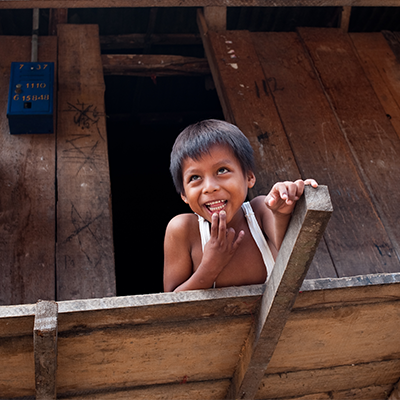PERU
Partners for pediatric Progress is operating at several sites in the Peruvian city of Iquitos, also known as the “capital of the Peruvian Amazon.” Located on the Amazon River, Iquitos is only reachable by boat or plane. It is the largest city in the Loreto region, one of the poorest regions in all of Peru where over 60 percent of the population live in poverty. Iquitos is home to the region’s only two hospitals and its only medical school putting a constraint on the ability of the health system to care for the large population it serves.
Children often travel from miles along the small rivers that feed into the Amazon River to reach the clinics and hospitals centrally located in Iquitos.
Children who reach these clinics do not receive appropriate care as there are not enough pediatricians in the region. Ultimately, limited access and lack of pediatric training contribute to the under-5 Mortality rate in the region which is the highest in all of Peru.
The Loreto region is currently facing one of the biggest shortages of pediatric specialists in the country. In Loreto, most physicians are general practitioners who have recently completed a one-year internship after medical school and are now fulfilling a one-year mandatory alignment of rural service. In 2010, there were only six pediatricians and no pediatric surgeons to serve the region’s population of one million. In a study, the Ministry of Health of Peru identified that the region needs at least 41-82 pediatric specialists and three pediatric surgeons to provide basic care to the population of Loreto. Currently there are very few residency training programs available in Iquitos to increase the number of pediatric specialists in the area. Doctors seeking to specialize in pediatrics must leave Iquitos for Lima and other distant areas to train. In addition, very few physicians in Loreto (10%) chose to specialize. Those who leave Loreto to specialize rarely return to the region following their training. This has resulted in an overwhelming disparity in quality of care, leaving the Loreto region with an extremely limited availability of pediatric services.
Based on AN intensive needs assessment
Partners for Pediatric Progress is sending pediatricians, neonatologists, pediatric critical care experts, and pediatric nurses to the region to train and work closely with our colleagues there and support the effort to increase pediatric training for physicians and nurses to care for children living in extreme conditions of poverty. Our organization currently partners with the Hospital Regional de Loreto in Iquitos, to work with physicians, nurses, and students. Clinician-educators from Partners for Pediatric Progress work directly with colleagues in the inpatient nursery, in the pediatric intensive care unit and on the inpatient pediatric wards.
We are also working with our Peruvian partners in the primary care clinics of Iquitos’ impoverished community of Nanay, and in other more isolated community clinics in the Amazon basin. Nanay is a district that lies at the edge of the city of Iquitos on a tributary of the Amazon River. It is a densely crowded district where most of its inhabitants are poor and many live in extreme poverty. From February through July, the river level rises five to six meters resulting in heavy flooding of the district. During these months the community is connected by an intricate network of planks above the water (as pictured below).
The overcrowded conditions, poor sanitation, and annual flooding create conditions that place the people of Nanay at risk for contracting diseases such as dengue, water-borne illness, and tuberculosis. There is a teaming outpatient clinic in the middle of Nanay, with a high volume of high-risk children seen at this site. The providers at the Nanay Clinic have asked for primary care pediatricians and pediatric nurses from Partners for Pediatric Progress to work with them closely. While there, clinician-educators from the US also work with physicians and public health nurses up river, seeing children in more rural Amazon health centers, and supporting the public health efforts in these settings.















